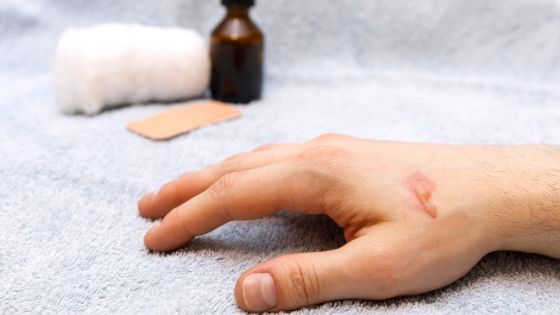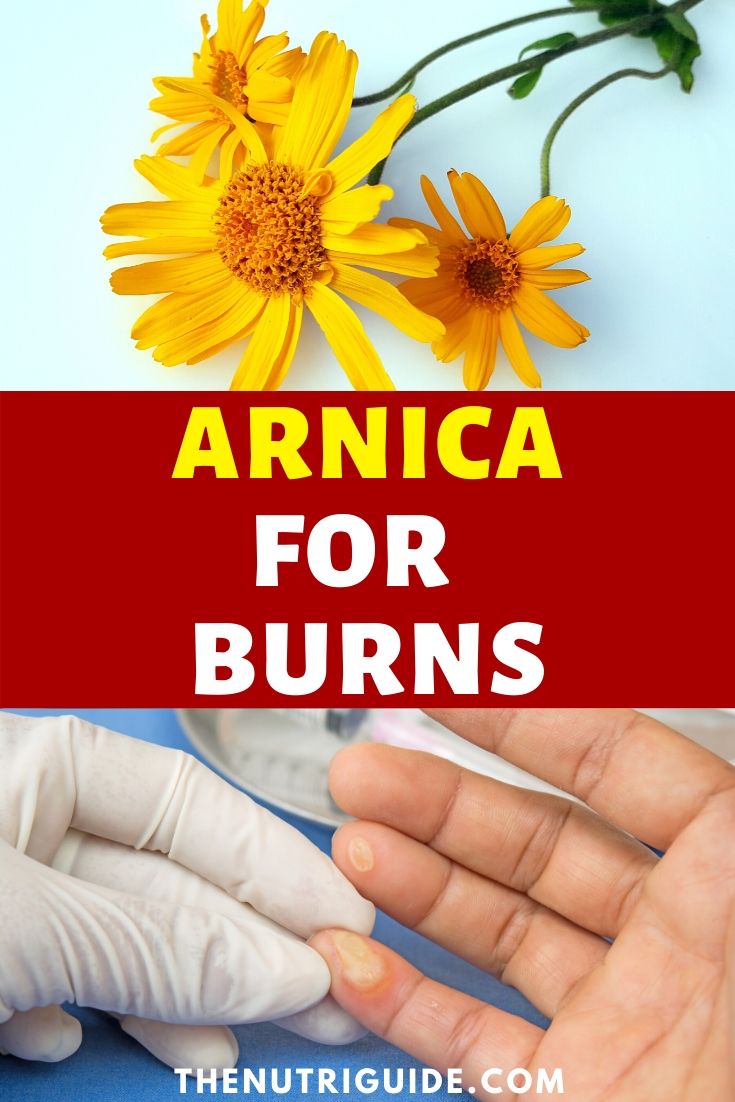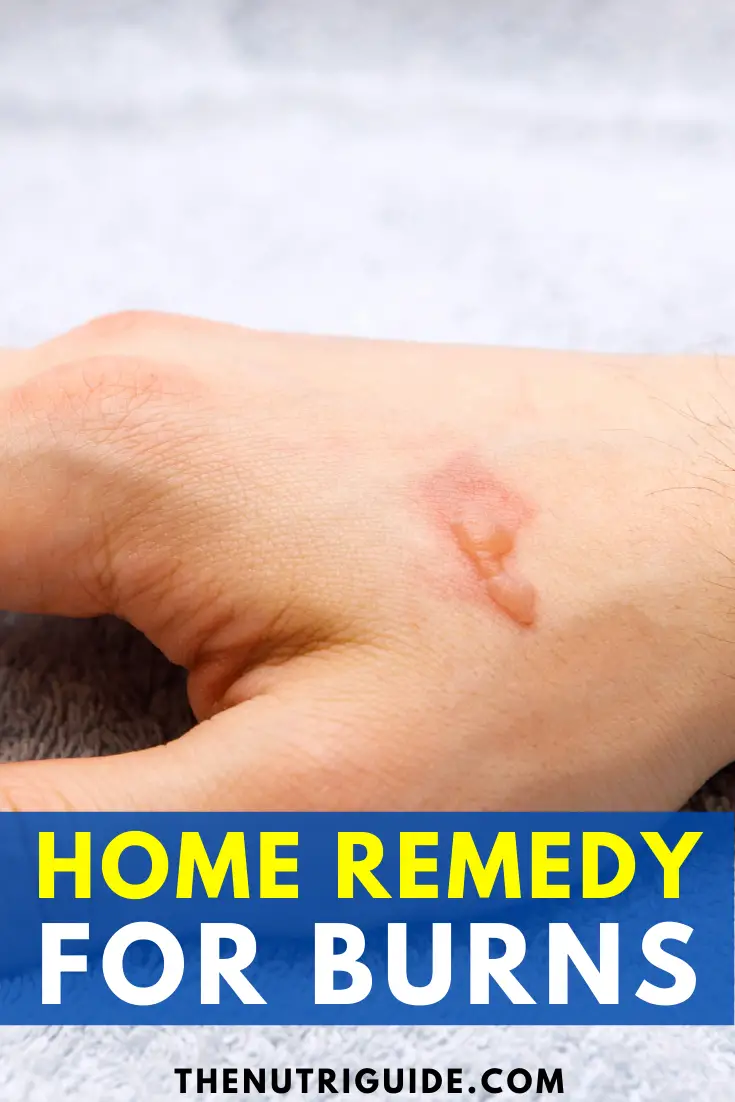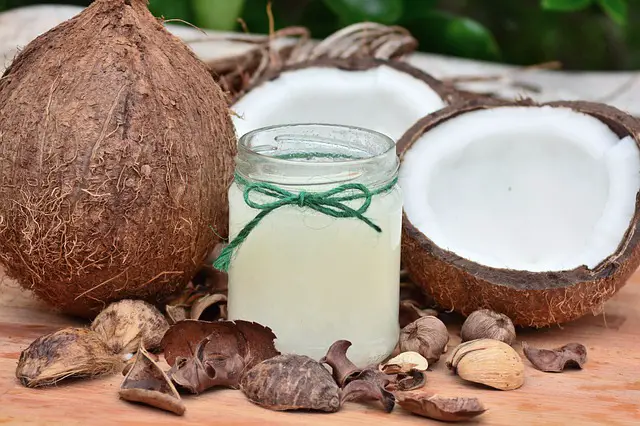Arnica for Burns: Homeopathic Cream & Gel Remedy

Arnica for Burns: Get Natural Relief
When you buy through links on our site, we may earn an affiliate commission at no additional cost to you (learn more)

You do all you can to avoid them, but sometimes they just happen. Whether you’re reaching into the toaster oven for your breakfast slice, pulling out muffins from the oven, or your child accidentally touched the muffler on the quad, burns are always inconvenient and never fun to deal with. The immediate pain is one factor. But the aftermath can be even worse, depending on the severity of the burn. With various degrees of severity, different treatments can be used for a burn. If your burn is showing signs of infection, such as warmth, redness, or oozing, seek medical attention. Additionally, if your burn is very large or has not healed within two weeks, go to your doctor. For less severe burns, you can use arnica products for relief and treatment.
Play Video See Our #1 Arnica Product
An herb deriving from more temperate climates, such as in Northern America or Eastern Asia, arnica has been used for centuries as a therapeutic agent. With the medicinal components coming from the flower petals and roots of the Arnica montana plant, it is widely used to treat various ailments including muscle aches, sprains, and bruises to this very day.
As you may have ascertained, arnica can also be used in the treatment of burns. A good-quality arnica oil will be made as an infusion, whereby the flower heads are allowed to steep in a carrier oil such as a light olive oil. This avoids the addition of other chemicals, such as alcohol, and the application of high heat, and produces a natural product that can be used for many different purposes.
How Does Arnica Work?
Arnica acts as an anti-inflammatory agent. What gives arnica this ability is the compounds found in the herb, including sesquiterpene lactones. These compounds allow arnica to serve as a healing, relieving, and soothing product when used appropriately. It is reported to be able to reduce pain, improve swelling, and even have antibiotic properties. And, as relates to this article, arnica can help in the healing of and provision of relief for burns.
Arnica for Burns
Play Video
Many of these claims for the therapeutic usefulness of arnica are backed by research. A recent study looked at the effects of extracts from arnica on the treatment of burns. Individuals underwent an experiment in which four burns were methodically inflicted on their backs (small ones, using a laser). Each burn was treated either with an arnica-extract gel, an arnica-extract liquid, or a placebo gel or placebo liquid.
The study indicated that the burns treated with the arnica-extract, whether liquid or gel, seemed to heal more quickly than the placebo-treated burns. This has beneficial applications for a couple of reasons, one being that burns have a higher chance of getting infected than other comparable wounds.
The longer amount of time a burn is left unhealed, the higher your chances are of acquiring an infection. This study showed that arnica may effectively increase the rate of healing for burns, which would resultantly decrease your chances of infection. For this purpose, arnica can be purchased as a gel or a cream and simply applied topically to your burn. You can also make your own arnica-based salve pretty easily with many recipes being available on the internet.
Safety Precautions

While arnica has many therapeutic benefits, it does come with some risks. Arnica is poisonous in its pure form. It has caused liver toxicity and death in the past. It can also induce a fast heartbeat, gastrointestinal issues, and coma, among other problems. These adverse effects can be avoided by not ingesting pure arnica, not applying it directly to open or sensitive skin, and not using it when pregnant or breastfeeding.
Homeopathic products are generally safe when choosing to use arnica. And dietary supplements containing arnica contain it in very small amounts that shouldn’t impart any negative side-effects. If you find that you have a skin reaction after applying an arnica product, such as a burning sensation or general irritation, stop use of that product.
Additionally, let your doctor know if you are planning to take an arnica supplement in while you are taking other medications, as dietary arnica may have some medicinal interactions that could be adverse to your health.
Final Thoughts
Arnica can be used for many ailments. It is an herb with components that impart soothing, healing, and relieving effects for conditions such as sore muscles, sprains, and general pain. When used topically, arnica has been shown to increase the healing time of burns. So, the next time you or a loved one suffers a burn, consider using an arnica product or making your own homemade salve. It can help you decrease the chance of infection from a burn while also providing relief from the pain and inflammation brought on by the injury.
Our Favorite Arnica Gel

- Plant based active ingredients
- Affordable
- HOMEOPATHIC MEDICINE uses highly diluted biological, botanical, or mineral substances to relieve symptoms
Related Posts
Sources
https://www.mskcc.org/cancer-care/integrative-medicine/herbs/arnica
https://www.ncbi.nlm.nih.gov/pubmed/21944657 (Complementary Therapeutic Medicine Journal)
https://www.webmd.com/vitamins/ai/ingredientmono-721/arnica
PIN THIS






